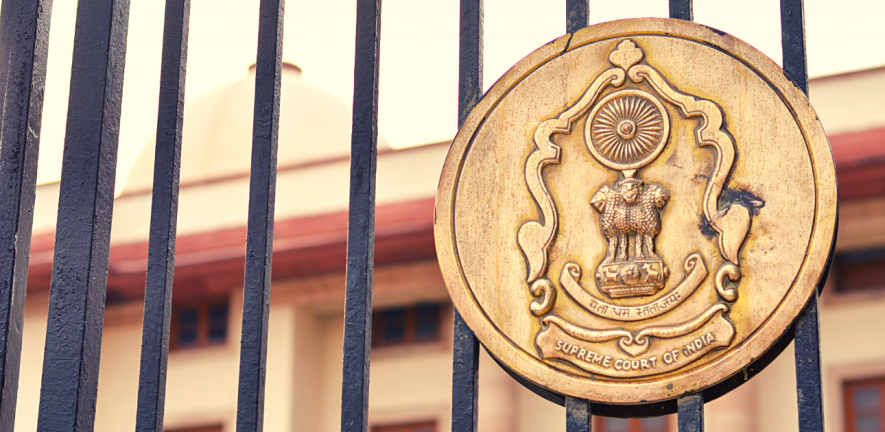Avoid Unnecessary Arrests That Cause Humiliation, Curtail Individual Liberty: SC Tells Police

The court also directed all high courts to frame the guidelines laid down in Arnesh Kumar versus State of Bihar in the form of notifications to be followed by sessions courts and other criminal courts dealing with various offences.
—
On Monday, a two-judge Bench of the Supreme Court directed the police to strictly follow the law laid down in Arnesh Kumar versus State of Bihar on notice of appearance to an accused before making an arrest.
The court also directed all high courts to frame the guidelines laid down in Arnesh Kumar in the form of notifications to be followed by sessions courts and other criminal courts dealing with various offences.
A Bench comprising Justices S. Ravindra Bhat and Arvind Kumar passed a judgment to this effect.
In 2014, in Arnesh Kumar, the Supreme Court had, among other things, directed that the notice of appearance in terms of Section 41A of the Code of Criminal Procedure (CrPC) should be served on the accused before making an arrest.
The court had issued the direction to prevent unnecessary arrests which, in the opinion of the court, bring humiliation, curtail freedom and cause lasting scars.
Besides reiterating the directions contained in Arnesh Kumar judgment, the Supreme Court has again instructed director generals of police (DGPs) in all states to ensure that strict instructions in terms of the directions are issued.
“Both the high courts and the DGPs of all states shall ensure that such guidelines and directives or departmental circulars are issued for guidance of all lower courts and police authorities in each state within eight weeks from today,” the Bench directed.
The court has also called for filing of affidavits of compliance within ten weeks by all the states and high courts through their registrars.
The Bench was hearing an appeal against a Jharkhand High Court’s Order denying anticipatory bail to a petitioner in a first information report (FIR) under Sections 498A (cruelty by husband or his relative), 323 (voluntarily causing hurt), 504 (insult to provoke breach of peace) and 506 (criminal intimidation) of the Indian Penal Code, 1860 (IPC) and Sections 3 (penalty for giving or taking dowry) and 4 (penalty for demanding dowry) of the Dowry Prohibition Act, 1961.
The Bench noted that the petitioner, who was the accused, had cooperated with the investigation. After the completion of the investigation, a chargesheet was filed before a sessions judge.
The petitioner-husband and the respondent-wife were married on November 25, 2020. The husband alleged that his wife was not happy and her father used to interfere and pressurise him and his family.
This led to complaints lodged against the wife’s family for threatening the appellant’s family. However, on April 2, 2022, the wife registered an FIR against her husband and husband’s brother and others, complaining of dowry demand.
The petitioner apprehended arrest and applied for anticipatory bail under Section 438 of the CrPC before the sessions judge, Gumla, Jharkhand, which was rejected. The petitioner then approached the Jharkhand High Court seeking anticipatory bail, but that too was rejected.
Disapproving of the high court Order, the Bench noted that there were no startling features or elements that stand out or any exceptional fact disentitling the petitioner from the grant of anticipatory bail.
“What is important is not that the matrimonial relationship soured almost before the couple could even settle down but whether allegations levelled against the appellant are true or partly true at this stage, which at best would be a matter of conjecture, at least for this court,” the Bench highlighted.
It noted that what was a matter of record was that the time when the anticipatory bail was pending can be divided into two parts. Firstly, when there was no protection afforded to the petitioner through any interim Order (between April 2022 and August 8, 2022). Secondly, when the high court, on August 8, 2022, passed an Order effectively directing the police not to arrest the petitioner during the pendency of his application under Section 438 of the CrPC.
“Significantly, the investigation was completed, and chargesheet was filed after August 8, 2022 and, in fact, cognisance was taken on October 1, 2022 by the sessions judge. These factors were of importance, and though the high court has noticed the factors but [it has] interpreted them in an entirely different light.
“What appears from the record is that the appellant cooperated with the investigation both before August 8, 2022, when no protection was granted to him and after August 8, 2022, when he enjoyed protection till the filing of the chargesheet and the cognisance thereof on October 1, 2022,” the Bench spoke of the high court Order.
The Bench also underscored that once the chargesheet was filed and there was no impediment in the investigation, at least on the part of the accused, the court, having regard to the nature of the offences, the allegations and the maximum sentence that the offences were likely to carry, ought to have granted bail as a matter of course.
The court noted that the high court did not do so but mechanically rejected and, virtually, to rub salt in the wound, directed the appellant to surrender and seek regular bail before the trial court.
Commenting on the values of personal liberty, the Bench observed that it had been ruled in a long line of cases that ordinarily bail ought to be granted and that in serious cases— which are specified in the provisions of the CrPC (Section 437) which involve allegations relating to offences carrying long sentences or other special offences, the court should be circumspect and careful in exercising discretion.
Get the latest reports & analysis with people's perspective on Protests, movements & deep analytical videos, discussions of the current affairs in your Telegram app. Subscribe to NewsClick's Telegram channel & get Real-Time updates on stories, as they get published on our website.
























